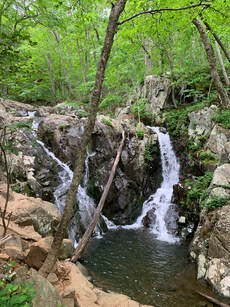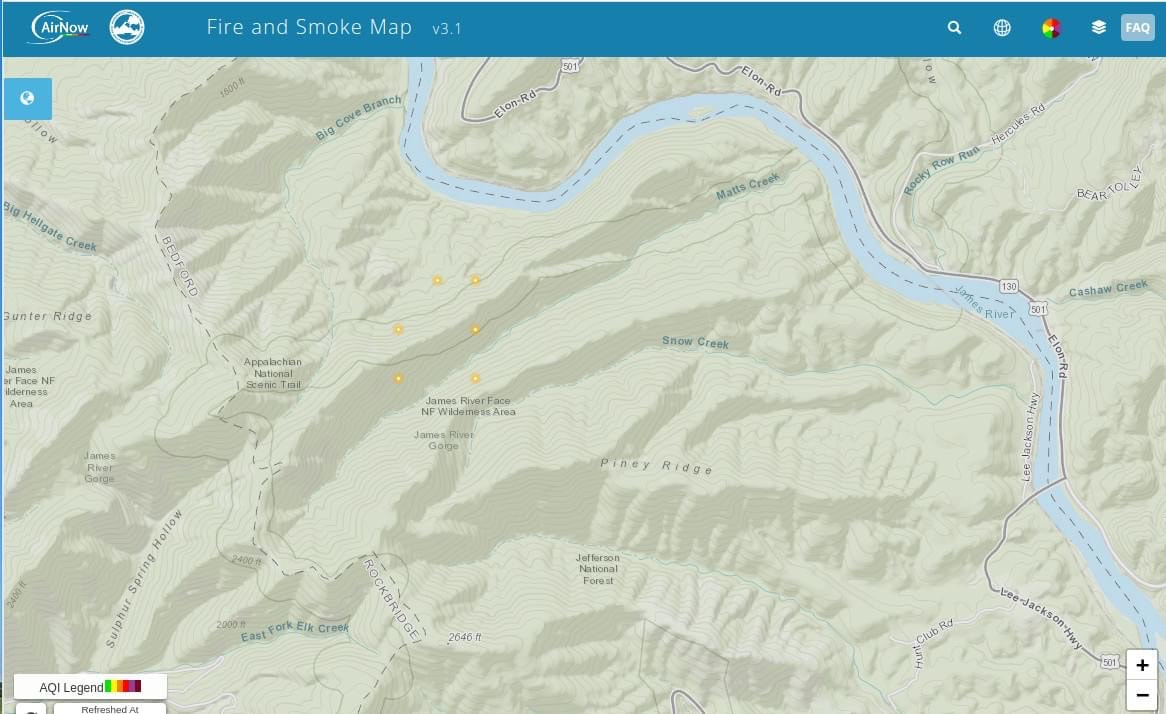Garlic Mustard Pull
Date: Sat., April 13, 2024
Time: 10 am - 2 pm
Where: Hone Quarry Picnic Area (Map)
Date: Sat., April 13, 2024
Time: 10 am - 2 pm
Where: Hone Quarry Picnic Area (Map)
Registration required. Click here
We are going to beat Garlic mustard by pulling it, and then we are going to eat Garlic mustard pesto! And best of all, we are going to view native wildflowers growing in the Hone Quarry area.
Unfortunately, the invasive Garlic mustard plant is moving into the Hone Quarry area and threatening special wildflowers, like bloodroot, hepatica, and trilliums, that generations of people have come to Hone Quarry to enjoy. This invasive plant out-competes our native plants — both by growing vigorously and by poisoning the soil.
Fortunately, pulling Garlic mustard is easy and effective, especially in the Spring, before it flowers or produces seed.
Conservation groups, including: Friends of Shenandoah Mountain, PATC's Southern Shenandoah Valley Chapter and Shenandoah Mountain Trail Crew; Virginia Native Plant Society, Shenandoah Chapter; Virginia Master Naturalists - Headwaters Chapter; and the Virginia Wilderness Committee are joining to rid Hone Quarry of this destructive invasive plant and protect the native biodiversity of this special place.
Please come and help us out and taste some Garlic mustard pesto.
What to bring: Bring daypack with water, snacks, sun hat, sunscreen, raincoat, mosquito repellant, and garden gloves.
What to expect: Our goal for this worktrip is to pull Garlic mustard in several key areas and have fun while we are doing it. We will start by dividing into small groups (each trained and led by a naturalist), to pull in these areas:
Questions? Contact Jean Stephens at jtstephens12@yahoo.com or 443-986-5649.
Fortunately, pulling Garlic mustard is easy and effective, especially in the Spring, before it flowers or produces seed.
Conservation groups, including: Friends of Shenandoah Mountain, PATC's Southern Shenandoah Valley Chapter and Shenandoah Mountain Trail Crew; Virginia Native Plant Society, Shenandoah Chapter; Virginia Master Naturalists - Headwaters Chapter; and the Virginia Wilderness Committee are joining to rid Hone Quarry of this destructive invasive plant and protect the native biodiversity of this special place.
Please come and help us out and taste some Garlic mustard pesto.
What to bring: Bring daypack with water, snacks, sun hat, sunscreen, raincoat, mosquito repellant, and garden gloves.
What to expect: Our goal for this worktrip is to pull Garlic mustard in several key areas and have fun while we are doing it. We will start by dividing into small groups (each trained and led by a naturalist), to pull in these areas:
- Hone Quarry Picnic Area (easy access and short distance, includes area around restroom)
- Hone Quarry Campground (walk through the campground and pull)
- Forest Road 62 from the low water bridge to the Reservoir (good wildflowers here, too)
- Forest Road 62 and Slate Springs Trail from Hone Quarry Reservoir to Hone Quarry Falls (4.3 miles round trip with a wide variety of wildflowers)
Questions? Contact Jean Stephens at jtstephens12@yahoo.com or 443-986-5649.






 RSS Feed
RSS Feed